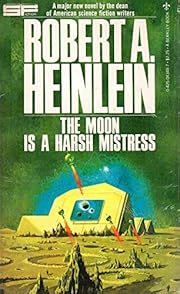James Randi, stage magician (“the Amazing Randi”), skeptic, and writer, died on October 20, 2020. He was someone I really admired. He took on nonsense and demolished it. He gave Penn and Teller their start. This post is about one of his books mostly so I can talk about him. The book is Flim-Flam!, published in 1982. I don’t think it’s currently in print, but used copies are easy to find.
He took apart many claims of paranormal phenomena such as astrology, fairy photography, and faith healing, using facts and logic. Sometimes this made him unpopular, but he had fun doing it.
He pointed out that even smart people (like you and me, right?) can be fooled. Scientists can be especially gullible because they aren’t used to dealing with nonsense and fakery.
Randi was famous for offering a monetary reward to anyone who could demonstrate paranormal abilities. Originally it was for $10,000, and later he increased it to a million dollars. In Flim-Flam, he wrote:
I have carried around with me ever since a check in that amount [$10,000], immediately awardable to a successful applicant. … The offer is still open, and will be during my lifetime. It is stipulated in my will that if the amount is still unclaimed and available upon my death, the same offer will be made by my estate in perpetuity.
(more…)
 Robert Heinlein’s The Moon Is a Harsh Mistress is one of his most enduringly popular novels, especially among libertarians. Doing these book posts gave me an excuse to read it for the first time in many years.
Robert Heinlein’s The Moon Is a Harsh Mistress is one of his most enduringly popular novels, especially among libertarians. Doing these book posts gave me an excuse to read it for the first time in many years.  It’s a curious thing that the people who say you should leave the country if you don’t like it are so often the ones who favor legal barriers to doing it. Having the option is a valuable freedom, though.
It’s a curious thing that the people who say you should leave the country if you don’t like it are so often the ones who favor legal barriers to doing it. Having the option is a valuable freedom, though.  The early 1930s were a bad time for people who loved freedom. The Communists had taken over in Russia, as had the Fascists in Italy, and the Nazis were fast gaining power in Germany. The world economy had just crashed. In 1932, Aldous Huxley published
The early 1930s were a bad time for people who loved freedom. The Communists had taken over in Russia, as had the Fascists in Italy, and the Nazis were fast gaining power in Germany. The world economy had just crashed. In 1932, Aldous Huxley published